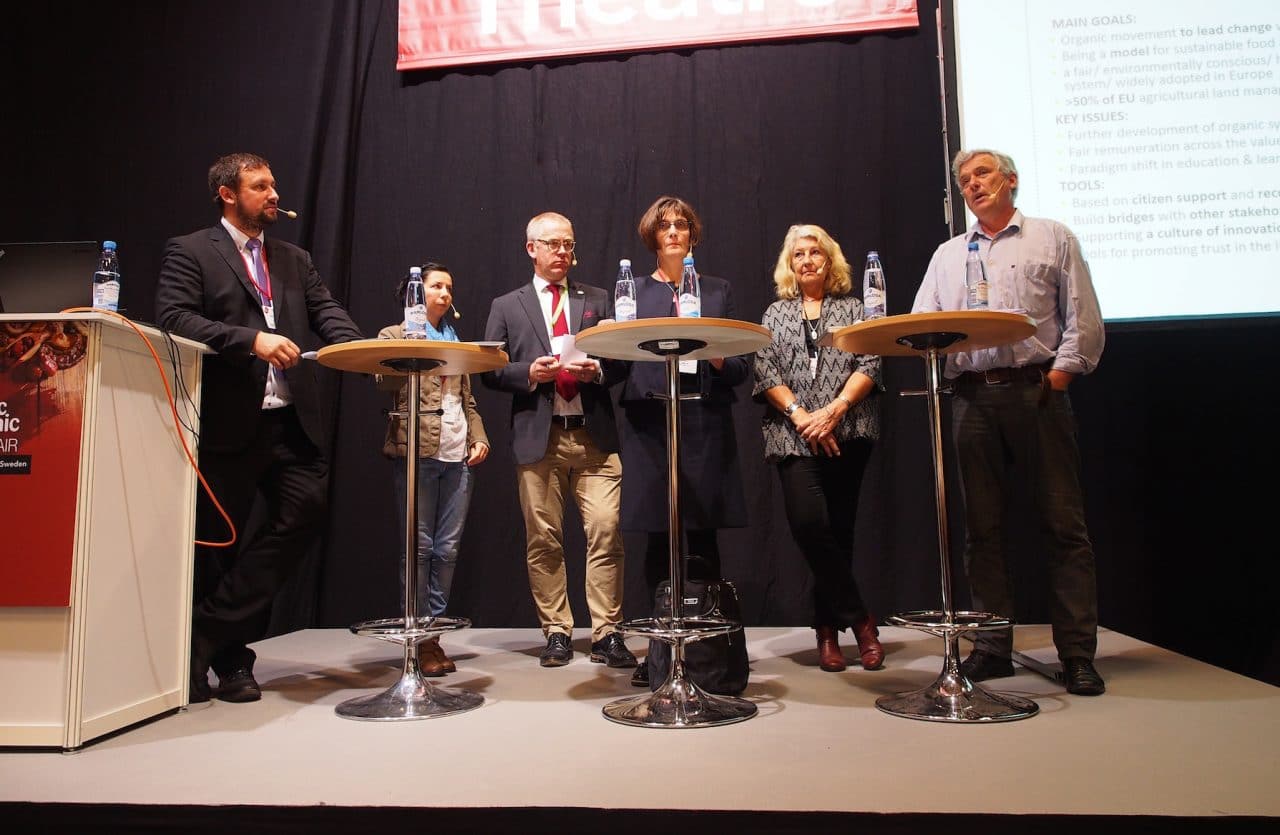Market cooperation, not political policy, is driving record growth of organic food and drink sales in Scandinavia, a group of industry leaders from the region has agreed.
Representatives from organic groups in Sweden, Denmark, Norway and Finland came together earlier this week at a special panel discussion at the Nordic Organic Food Fair in Malmö.
Panelists were challenged by IFOAM EU’s Marco Schlüter to suggest how the Nordic organic sector could improve and expand organic.
Per Kølster, chairman of Organic Denmark, readily acknowledged the “privileged position” that the Danish organic industry has enjoyed. “We’re lucky, conventional agriculture is not against us – they even support us. And that has helped create a very supportive government policy and, in turn, a wide perception that organic farming is really significant in Denmark. But we face a challenge with the change of government. Conventional farming looks like it will be heavily supported by the government in future and we even expect to be discriminated against.”
Johan Cejie, sales manager at KRAV in Sweden, said that the current spectacular market growth (sales of organic products grew 40% in 2014) was happening “in spite of the political life”. “There is real power with the consumer,” he added, “but other market factors are very active”. He noted that leading retailers and organic brands were setting their own targets and working closely with standard-setters like KRAV and other organic advocacy groups to help build the growth momentum.
He added: “What we really need from government is stability – what farmers need most is stability and foreseeability”.
Inger Källander from Organic Sweden said that political goals had played an important role, particularly in public food service operations. But she said that currently “there are no political targets – yet the market is exploding, and consumer interest is holding”. It was vital, she added, “the private sector can show politicians that organic is competitive and economically viable”.
“… there are no political targets – yet the market is exploding, and consumer interest is holding”
Maiken Pollestad Sele, from Oikos (Organic Norway), said that Norway had been enjoying the second highest growth rates – at 30% – in Nordic region. She said she hoped that Oslo could become a “locomotive for organic growth” in the way Copenhagen had. But she also warned that organic had some strong opponents. “They are telling people that the world will starve if we go organic – so we have to crush some myths”.
Marja-Riitta Kottila, of Pro Luomo in Finland said her country was “a little behind in the success” being achieved in organic in other parts of the Nordic region. She said she was concerned that “the culture of innovation that we all agree is needed may be stifled by the bureaucracy of organic certification”. She added: “Lots of farmers would like to do something that is close to organic – but perhaps outside official standards”.





